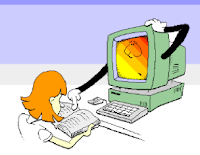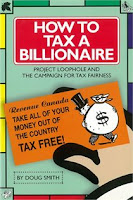 |
| Annie Dalton, graphic artist, created this poster for us. |
For example, we are singing Missa Gaia this month. Floating around are illegal copies of the CD. Some say that they had to since there are two groups doing this piece in southeastern Ontario, and Amazon ran out of copies. This is so wrong.
Musicians, of all people, do not have pension plans. They rely on royalties.
It is difficult earning a living in Canada as a musician. We just don't have the population or the venues. Many church organists have a 'day' job! Churches are in decline, as well, and many are having to close their doors.
Royalties won't make musicians rich, despite the millions of us who enjoy liturgical music. We have many Canadians who do write music. We must respect them.
In my case, I received a royalty from my book sales this month. I think it is for the last 6 months. It was $22.50.

Copyright fees depend upon the size of the church.
Christian Copyright Licensing Inc. (CCLI)
Web: www.ccli.com
Web: www.ccli.com
The Christian Copyright Licensing Inc. (CCLI) was created to help churches comply with the copyright law and to compensate copyright owners fairly for such compliance. The CCLI issues licences to reproduce songs in bulletins, liturgies and congregational songsheets; make slides and transparencies of songs; print songs in customized songbooks; make customized arrangements of songs and record worship services for tape ministry.
The CCLI Church Streaming and Podcast License allows you to stream or podcast your live-recorded worship music on your church's website or other streaming service.
SOCAN
The Society of Composers, Authors and Music Publishers of Canada is a not-for-profit organization that represents the Canadian performing rights of millions of Canadian and international music creators and publishers.
The performing right that SOCAN administers on behalf of creators of musical works and their publishers is a right granted under Canada's Copyright Act. The Copyright Board of Canada certifies SOCAN's tariffs.
What is Public Domain Music?
In Canada, a musical work enters the public domain 50 years after the year of the death of the last surviving composer/author of the work. No fees are typically due if all the works in a performance are public domain. You are responsible for submitting a program to SOCAN for final determination. Please contact SOCAN at 1-866-944-6226 or licence@socan.ca.
US and Canadian law is pretty much the same:
Copyright and the Church
This is specifically allowed in copyright law. But, if you are performing music in a concert setting you would need permission.
“My church makes audio/video recordings of worship for shut-ins. Must I obtain permission?”
Unfortunately the answer is yes. Many churches violate copyright law when they record their worship services and provide copies to members, visitors, shut-ins, etc. If you do not have permission, you are in violation of copyright law and you are exposing your church to potentially large fines.
“My church produces instant DVDs of worship. We need permission, right?”
Yes, churches producing “instant DVDs” of their worship services and handing them out within a few moments of the end of worship need to obtain permission for each copyrighted work included. This not only applies to songs, but copyrighted readings, film clips, etc. It does not matter if you sell them or give them away.
The simple answer is: always. Whenever a copyrighted work is reproduced in any form, permission must be obtained: print, projection, recording, web-based uses. This applies to bulletins, song books, handouts, projections, recordings for shut-ins, an “extra” copy for the accompanist, videos of worship services and musicals, children’s Christmas programs, etc.
http://laws-lois.justice.gc.
www.ucc.org/music-arts/
http://laws-lois.justice.gc.
www.ucc.org/music-arts/















